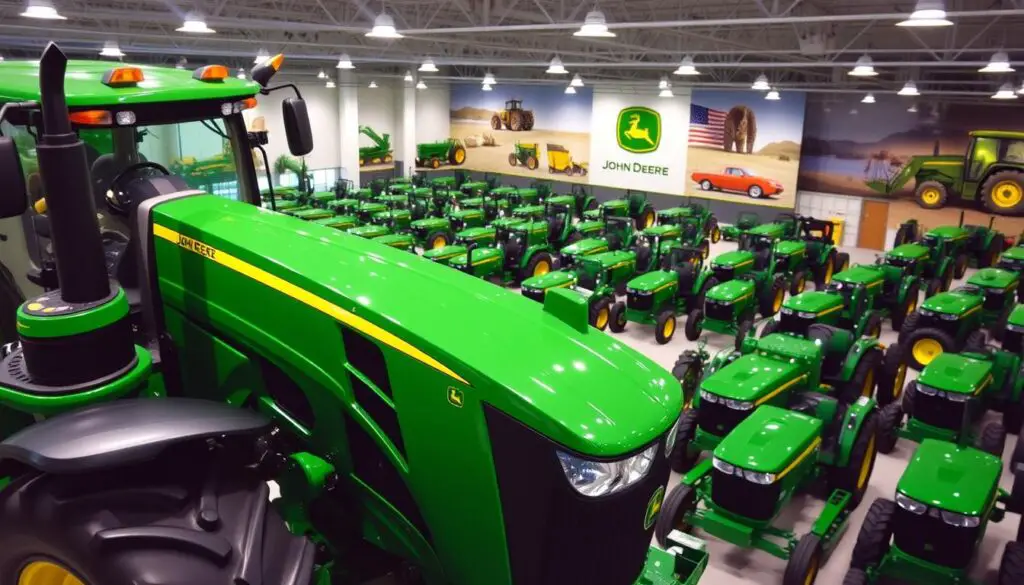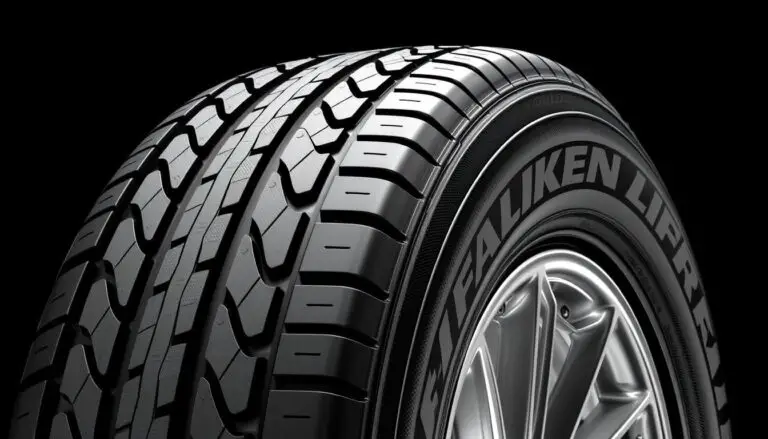Choosing the right tractor is a crucial decision for farmers and agricultural businesses. Two prominent brands in the market are Kubota and John Deere, known for their quality and performance.
A tractor comparison between these brands can help potential buyers make an informed decision. Both Kubota tractors and John Deere tractors have their unique features, advantages, and loyal customer bases.
Understanding the differences and similarities between these tractors is essential for selecting the one that best fits specific needs and preferences.
Key Takeaways
- Understanding the market presence of Kubota and John Deere tractors.
- Identifying key features that differentiate these tractor brands.
- Evaluating the performance and reliability of Kubota and John Deere tractors.
- Considering customer preferences and loyalty towards these brands.
- Assessing the importance of choosing the right tractor for agricultural needs.
The Legacy and Market Position of Kubota and John Deere
In the world of agriculture and landscaping, Kubota and John Deere are renowned for their high-quality tractors. Both brands have a rich history and a significant presence in the global market.
John Deere’s American Heritage and Global Presence
John Deere, an American company founded in 1837, is known for its innovative agricultural machinery. With a history spanning over 180 years, John Deere has established itself as a leader in the industry, not only in the United States but also globally. The company’s commitment to innovation and quality has earned it a loyal customer base. For more historical context, visit this resource.

Kubota’s Japanese Engineering Philosophy
Kubota, a Japanese company founded in 1890, is celebrated for its durable and versatile tractors. Kubota’s engineering philosophy focuses on delivering reliable and efficient machinery that meets the diverse needs of farmers and landscapers worldwide. The company’s commitment to quality and innovation has made it a preferred choice among tractor enthusiasts.
Market Share and Reputation in the US
In the United States, both John Deere and Kubota have a significant market share. John Deere is often praised for its extensive dealer network and comprehensive after-sales support. Kubota, on the other hand, is known for its compact and versatile tractors that are ideal for smaller farms and landscaping tasks. The reputation of both brands is built on their commitment to quality, reliability, and customer satisfaction.
Understanding the legacy and market position of these two tractor giants is crucial for making an informed decision when choosing the right tractor for your needs.
Kubota vs John Deere: An Honest Review of Tractor Powerhouses
In the world of tractors, two names stand out: Kubota and John Deere, both offering a range of models to suit different needs. When comparing these brands, it’s essential to examine their offerings across various categories.
Compact Tractor Comparison: Kubota BX Series vs John Deere 1 Series
Compact tractors are ideal for small to medium-sized farms and landscaping tasks. The Kubota BX Series is known for its versatility and reliability, offering a range of implements and attachments. In contrast, the John Deere 1 Series provides a comfortable operator experience and is praised for its ease of use. Key features of the Kubota BX Series include:
- Robust engine performance
- Easy-to-use transmission
- Variety of available attachments
For those interested in exploring more options, you can view sub-compact tractors from various manufacturers.
Mid-Size Models: Kubota L Series vs John Deere 3-5 Series
Mid-size tractors are suitable for larger farming operations and more demanding tasks. The Kubota L Series is recognized for its power and efficiency, while the John Deere 3-5 Series offers advanced technology features and a comfortable ride. Some key aspects to consider include:
- Engine power and torque
- Transmission options and ease of use
- Hydraulic capacity and implement compatibility
Heavy-Duty Performance: Kubota M Series vs John Deere 6-7 Series
For heavy-duty applications, both Kubota and John Deere offer robust solutions. The Kubota M Series is designed for large-scale farming and construction, providing significant power and durability. Similarly, the John Deere 6-7 Series is built for demanding tasks, featuring advanced technology and a strong build quality. Notable features include:
- High horsepower engines
- Advanced transmission systems
- Enhanced operator comfort and control
When choosing between Kubota and John Deere, it’s crucial to consider your specific needs and preferences. Both brands offer a range of models with unique strengths, making the decision dependent on factors like the type of work, terrain, and personal preference.
Price Points and Value Proposition
When considering the purchase of a tractor, understanding the price points and overall value proposition of Kubota and John Deere tractors is crucial. The financial implications of buying and owning a tractor extend beyond the initial purchase price, encompassing long-term costs and resale value.
Initial Purchase Cost Analysis
The initial purchase cost is a significant factor in the decision-making process. Kubota tractors, particularly those in the BX series, are often priced competitively, with prices ranging from $15,000 to $30,000. In contrast, John Deere’s 1 Series tractors are similarly priced, offering a range of options between $15,000 and $35,000. The pricing can vary based on the features, horsepower, and attachments.
Price Comparison Table
| Tractor Series | Price Range | Notable Features |
|---|---|---|
| Kubota BX Series | $15,000 – $30,000 | Compact, versatile, and fuel-efficient |
| John Deere 1 Series | $15,000 – $35,000 | Reliable, easy to operate, and durable |
Long-term Ownership Costs and Maintenance Expenses
Long-term ownership costs, including maintenance, repairs, and fuel, play a critical role in the total cost of ownership. Kubota tractors are known for their fuel efficiency and lower maintenance costs, potentially reducing the overall cost of ownership. John Deere tractors, while reliable, may have slightly higher maintenance costs due to the complexity of their systems.
Resale Value and Trade-in Considerations
Resale value is another important consideration. John Deere tractors generally retain their value well, thanks to their reputation for durability and the brand’s strong resale market. Kubota tractors also hold their value, particularly for models with lower hours and well-maintained conditions. Understanding the resale value can help buyers make a more informed decision.
Technology, Reliability, and Dealer Support
Tractor buyers often weigh the technological features, durability, and dealer support offered by Kubota and John Deere before making a purchase decision. Both manufacturers have made significant strides in these areas, but there are key differences that can influence a buyer’s choice.
Technology and Innovation Comparison
Kubota and John Deere have been at the forefront of tractor technology innovation. Kubota’s tractors often feature a more compact design with advanced hydraulic systems, while John Deere is known for its sophisticated precision agriculture technology, including GPS guidance and auto-trac systems. For instance, John Deere’s latest models come equipped with advanced telematics, allowing for real-time monitoring and data analysis.
In contrast, Kubota has focused on developing user-friendly interfaces and versatile attachments that enhance the tractor’s functionality. Their tractor technology is designed to be intuitive, making it easier for operators to manage complex tasks.
Build Quality and Durability Assessment
When it comes to tractor reliability, both brands have a reputation for building durable machines. John Deere tractors are often praised for their robust build quality, capable of withstanding heavy-duty tasks over extended periods. Kubota, on the other hand, is known for its tractors’ versatility and ruggedness, particularly in challenging terrains and compact spaces.
The durability of these tractors is a testament to their build quality. Owners can expect a long lifespan from both Kubota and John Deere tractors, provided they receive regular maintenance.
Dealer Network and After-Sales Support in the United States
Dealer support is a critical factor in the overall ownership experience. John Deere boasts an extensive dealer network across the United States, offering comprehensive after-sales support, including maintenance services and parts supply. Kubota also has a significant presence, with a network that, while not as large as John Deere’s, still provides robust support to its customers.
The quality of after-sales support can significantly impact the overall cost of ownership. Both manufacturers offer warranty programs and dedicated service centers, ensuring that tractor owners receive the support they need.
Conclusion: Choosing the Right Tractor for Your Needs
When deciding between Kubota and John Deere tractors, understanding your specific needs is crucial. Both brands offer a range of models with unique features, making the Kubota vs John Deere comparison a nuanced one.
In this tractor comparison, we’ve examined the legacy, market position, and technological advancements of both brands. Kubota’s compact tractors are ideal for smaller farming operations or landscaping tasks, while John Deere’s range caters to a broader spectrum of agricultural needs.
The choice ultimately depends on your operational requirements, budget, and preferences. Consider factors such as initial purchase cost, long-term maintenance expenses, and resale value. Evaluating these aspects will help you make an informed decision that aligns with your farming or landscaping goals.
By weighing the strengths and weaknesses of each brand, you can select the tractor that best suits your needs, ensuring efficiency and productivity in your operations.
FAQ
What are the main differences between Kubota and John Deere tractors?
The main differences lie in their design philosophy, features, and target markets. Kubota tractors are known for their compact design and versatility, while John Deere tractors are often associated with power and durability.
How do Kubota and John Deere tractors compare in terms of power and performance?
Both brands offer a range of models with varying power outputs. Kubota’s BX Series and John Deere’s 1 Series are popular compact tractor options, while their larger models, such as Kubota’s M Series and John Deere’s 6-7 Series, cater to heavy-duty applications.
What are the initial purchase costs associated with Kubota and John Deere tractors?
The initial purchase cost varies depending on the model, features, and location. Generally, Kubota tractors tend to be more affordable, while John Deere tractors can be pricier, especially for high-end models.
How do the long-term ownership costs and maintenance expenses compare between Kubota and John Deere tractors?
Both brands have their own maintenance requirements and costs. Kubota tractors are known for their reliability and lower maintenance costs, while John Deere tractors may require more frequent maintenance, potentially increasing ownership costs.
What is the resale value of Kubota and John Deere tractors?
John Deere tractors tend to retain their value better due to their reputation for durability and widespread market presence. Kubota tractors also hold their value well, especially if properly maintained.
How do Kubota and John Deere support their tractors with dealer networks and after-sales service?
Both brands have extensive dealer networks in the United States, providing customers with convenient access to parts, service, and support. John Deere is known for its comprehensive after-sales support, while Kubota also offers reliable service and support.
What technological advancements have Kubota and John Deere incorporated into their tractors?
Both brands have integrated advanced technologies, such as precision agriculture features, into their tractors. John Deere is known for its advanced precision farming capabilities, while Kubota has also made significant strides in this area.
How do I choose between Kubota and John Deere tractors for my specific needs?
Consider factors such as the size of your operation, the type of tasks you’ll be performing, and your budget. Research and compare different models, and consult with dealers to determine which tractor best suits your needs.




